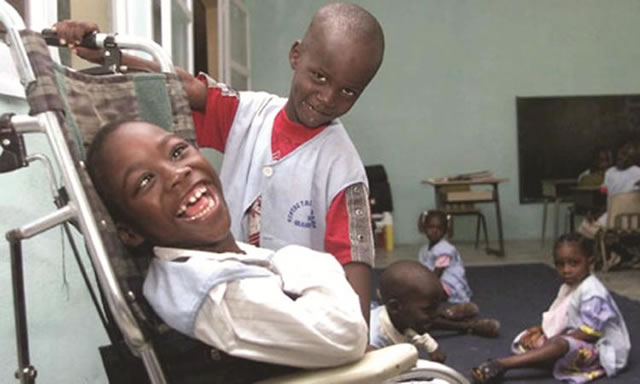Rise in cases of GBV cause for concern


Siphiwe Ndlovu, a victim of gender violence, battles for her life at Mpilo Hospital in Bulawayo after her husband stabbed her nine times, ripped her stomach leaving her intestines exposed
Vaidah Mashangwa
THE issue of gender based violence has reached unprecedented heights as perpetrators continue to butcher women and rape girls and children including babies. His Excellency, the President of the Republic of Zimbabwe, Cde Mugabe, on March 26, during the International Women`s Day national commemorations in Harare reiterated that for now women should not trust men until they prove that they are worthy trusting. Surely nowhere in the world has such a proclamation been made by a Head of State.
This alone shows the gravity of the matter at hand though some people may trivialise the matter by also highlighting that women are also raping men. While this is true, we must not forget that 99 percent of gender based violence perpetrators are men.
To this end therefore there is need for coordinated efforts from everyone including tertiary institutions, workplaces, churches, schools, individuals, families, civic organisations and hospitals alike to take a positive step and develop strategies that may help curb gender based violence. Each one of us should try to contribute in one way or the other to the reduction of gender based violence by 50 percent by 2015 as proclaimed in the Sadc Protocol on Gender.
The problem is the perpetrators do not care anymore whether they are raping their own daughters, step-daughters, wives, neighbours’ daughters, nieces and so on. They no longer care whether their victims are three-month-old babies, teens or grandmothers.
The problem is that in present days, marriage and commitment are de-emphasised and undervalued. I fail to understand how a married person can go on to rape a neighbour’s daughter or his own daughter. Has the moral fibre decomposed to that level where norm and values are no longer respected and constituted?
As children grow up it is important for parents to inculcate in their children a sense of responsibility and respect of the dignity of other people. It is unfortunate that as boys grow they tend to be more aggressive than females and are more likely than girls to fight, taunt, fight others and to fantasise about aggressive things and behaviour. At adulthood men use physical force to achieve their goals, a fact reflected in statistics of rape, spousal abuse and violent crime. It is important therefore for parents to shape the character of their children at a tender age.
There is also need to solve differences amicably. Usually people have a tendency to respond to attack with retaliation in an ‘eye for an eye’ fashion. This can produce an escalation of aggression. It is like a veld fire which often starts in the blink of an eye but in the end burns the whole forest as depicted in Shakespeare’s Romeo and Juliet. Disagreement usually provokes anger, violence erupts and simply escalates if not controlled. A good example is what normally happens in murder cases.
Indeed rape is largely thought to be a crime of aggression and power involving male need for control and domination of women. What is startling is that 6 percent of the victims are younger than 18 years at the time of their attack. It is also estimated that three out of 10 might not have reached 11 years.
It is quite a sad scenario to note that only 16 percent of these sexual assaults are reported mainly because in most cases the victim knows the rapist. A long time ago rape offences were committed out of the home by strangers. Nowadays over 80 percent of rape victims know the rapist according to the book Social Psychology. In over half of the cases, the rapist is a relative or spouse, boyfriend, ex-boyfriend or ex-husband.
One area where there is under-reporting is date rape and marital rape. It is estimated that women in dating relationships are forced into sexual activity against their will and much rape also occurs within marriages especially in already violent marital relationships. There is a tendency to blame women for most rape cases citing that women can resist rape if they want to or that they do so out of sexual invitation. However, the fact that at least 30 percent of all rapes involve children clearly contradicts these myths.
Apparently research revealed that date rape was higher when the woman initiates the date, when the couple goes to the man’s apartment and when the man pays the dating expenses. Men perceive women in such a scenario as significantly more interested in sex.
This is an indication that men may overestimate women’s interest in sex. Men should learn to take a no as a no and not take a no as a yes in sexual matters.
In fact, drinking with a man, going to his apartment or wearing sexy clothes are seen by men as indicative of a desire for sex, whereas women regard these behaviours as normatively appropriate and fashionable.
Women should learn to make their intentions explicit by setting limits on intimacy and by being assertive with someone who is pressing for sex. Men need to understand that a woman’s clothes and friendly behaviour do not necessarily indicate an interest in sex.
It must be understood that adjustment to rape can be difficult. Being raped has negative and often long lasting psychological consequences such as STIs and HIV infection. More than a year after rape the victim still experiences rape-related fear and anxiety, depression and family related problems.
Considering the shockingly high rate of gender based violence in Zimbabwe can we safely say therefore that sentences for perpetrators are not deterrent enough?
Vaidah Mashangwa is the Provincial Development Officer Bulawayo in the Ministry of Women Affairs, Gender and Community Development. She can be contacted on [email protected]










Comments